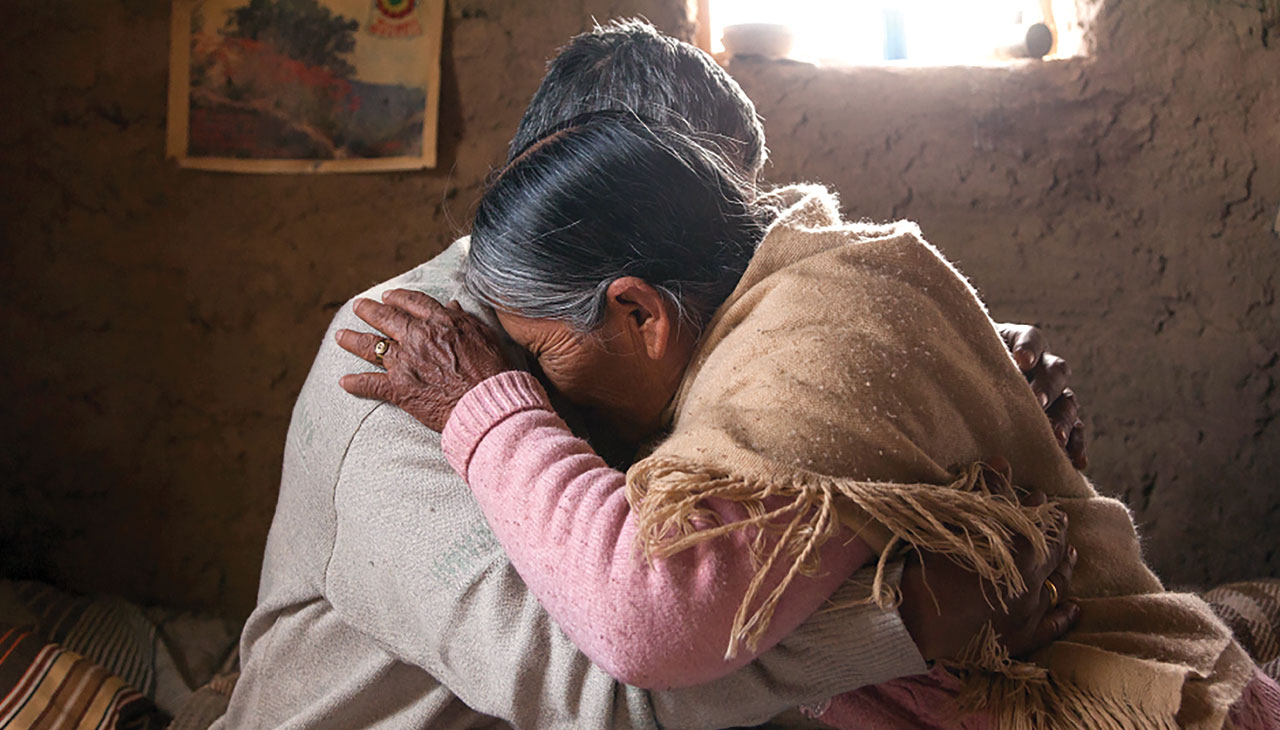
Love in the Time of Drought
Winner at Sundance and selected to represent Bolivia at the Oscars, the film Utama arrives in U.S. theaters in November.
Alejandro Loayza scoured Bolivia from top to bottom until he found the location where he would film his debut feature. It is called Santiago de Chuvica, an arid and amazing area, located in the middle of the Bolivian highlands, between 4,000 and 5,000 meters above sea level, and whose inhabitants are mostly engaged in agriculture.
Moved by the urgency of telling a love story between two people who have each other, who do not need anything else, who understand each other with gestures and silences, the Bolivian filmmaker sought out the protagonists of his film in this native community. “We knew it was going to be a difficult casting, because we needed older people who spoke Quechua and Spanish. And we traveled around the region, knocking door to door, and we gave them acting tests”, said the director in conversation with AL DÍA.
In this village in the Potosí region, Loayza not only found warmth and friendly people interested in his next film, but also those who would bring an authentic image to the big screen: Luisa Quispe and José Calcina, a senior couple who bring Sisa and Virginio to life in fiction.
Afflicted by an illness that only he knows about, Virginio dedicates himself to caring for his llamas, while Sisa tirelessly searches for access to water, an increasingly scarce resource in the area. This task is complicated by the severe drought, which threatens the survival of this family in a territory to which they owe their entire lives.
Clever (Santos Choque), the couple’s grandson, seems to arrive at the right moment, although his visit smacks of misfortune. The young man, absorbed by modernity, will cast in his grandparents the doubt between staying and face the adversities or forget their past and build a new future in the city.
RELATED CONTENT
Cinema, a Mirror of Latin America
With an extensive career in photography, documentary filmmaking and a remarkable social and environmental sensitivity, Loayza has been able to portray in Utama the impact of climate change on Latin American aboriginal communities: from drought to forced migration to big cities, which causes uprooting and a heartbreaking detachment from their traditions. In this sense, the director valued the work done by filmmakers to make these people visible and transcend their stories beyond borders. “In Latin America, indigenous communities are being valued much more from another point of view. Not from an anthropological point of view, but from a closer and more human one, and I think that has to do with understanding our continent”, he said.
U.S. Release
Utama, which means ‘our home’ in Aymara, premiered this year at the Sundance Film Festival and won the Grand Jury Prize in the international fiction competition.
Since then, the Bolivian-Uruguayan-French production has not stopped adding statuettes to its list of honors: it has won the Grand Prize for Best Film and Jury Award at Transylvania; Best Ibero-American Film, Best Director, Best Original Score and Jury Award at Malaga, and Best First Film at Guadalajara.
Selected as Bolivia’s official nominee for the Oscar Award for Best International Feature Film, the film will debut in the United States on Friday, November 4th at the Film Forum in New York, followed by Los Angeles and Chicago.











LEAVE A COMMENT: